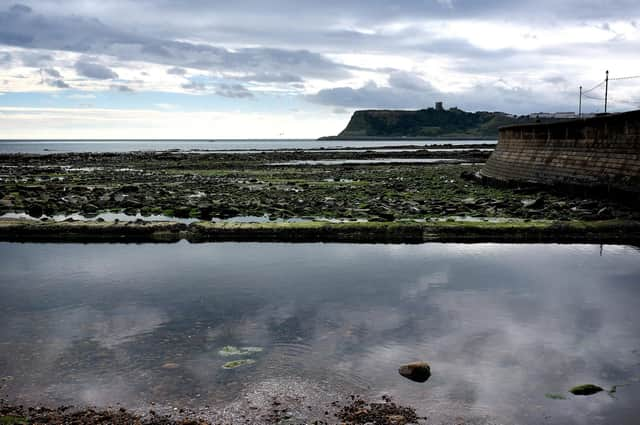Yorkshire Water dumped sewage into rivers and seas for more than half a million hours last year


The data published by the Environment Agency (EA) reveal that figures for Yorkshire Water show it is the second worst company for the number of hours sewage has spilled from its storm overflows, behind only United Utilities.
The levels of sewage spills for Yorkshire Water for 2023, 516,386 hours, has more than doubled on the figures for 2022 which were 232,054 hours, with spillage happening for an average of 6.6 hours’ duration.
Advertisement
Hide AdAdvertisement
Hide AdEA said there were 464,056 spills in 2023, up 54 per cent from 301,091 in 2022, which the organisation said was partly due to England experiencing its sixth-wettest year on record.
The figures reveal the frequency and duration of spills from storm overflows, which dump untreated sewage into rivers and the sea, usually during heavy rainfall to stop sewers backing up, amid high levels of public concern and anger over the state of England’s waterways and beaches.
They were described as “disappointing” but “sadly not surprising” by the EA while campaigners said the scale of discharges was a “final indictment of a failing industry”.
Yorkshire Water said it was disappointed about the number of discharges.
Advertisement
Hide AdAdvertisement
Hide AdA spokesman said:”The weather experienced in the region in 2023 included a very wet summer and prolonged heavy rainfall towards the end of the year resulting in groundwater infiltration into the sewer network.
“Met Office statistics show 1178mm of rainfall in our area in 2023, the highest level since 2013 and with the second half of the year one of the wettest on record.
“Our teams worked hard throughout 2023 to reduce discharges as part of our commitment to improve the operation of our network. As a result, our modelling indicates investment in our network and changes to our operations since 2021 equate to an improvement of 12,980 discharges when normalised against rainfall.
“Nevertheless, we know there is more to do, and we are making headway with a £180m programme to reduce discharges across the region by April 2025.”
Advertisement
Hide AdAdvertisement
Hide AdNationwide both the frequency and duration of spills were also up on 2020 levels, which saw comparable amounts of rainfall.
And the figures are at their highest ever levels, although officials caution that comparisons over the years are difficult as an increasing number of storm overflows have been fitted with monitors over time, and all now have the technology to record spills.
Environment Agency director of water Helen Wakeham said the figures were “disappointing” but “sadly not surprising”.
“We are pleased to see record investment from the water sector, but we know it will take time for this to be reflected in spill data – it is a complex issue that won’t be solved overnight.”
Advertisement
Hide AdAdvertisement
Hide AdWater minister Robbie Moore said: “I have been clear that sewage pollution in our waters is unacceptable, which is why in just the last few months we announced a consultation to ban water bosses’ bonuses when criminal breaches have occurred.
“Today’s data shows water companies must go further and faster to tackle storm overflows and clean up our precious waterways.”
In response to the figures, a spokesperson for industry body Water UK said: “These results are unacceptable and demonstrate exactly why we urgently need regulatory approval to upgrade our system so it can better cope with the weather.
“We have a plan to sort this out by tripling investment which will cut spills by 40 per cent by 2030 – more than double the Government’s target.
Advertisement
Hide AdAdvertisement
Hide Ad“We now need the regulator Ofwat to give us the green light so that we can get on with it.”
The water companies say they want to triple investment to £10bn over the period 2025-2030 to tackle the problem, which would be paid for through consumer bills.
But clean water campaigner Feargal Sharkey told BBC Radio 4’s World At One programme: “The truth is if anybody is going to be paying for this, any investment at this point needs to be made out of shareholders’ pockets and the public should not put another penny of their money, because we do not want to pay twice for something we have already paid for and didn’t get.”
Comment Guidelines
National World encourages reader discussion on our stories. User feedback, insights and back-and-forth exchanges add a rich layer of context to reporting. Please review our Community Guidelines before commenting.
